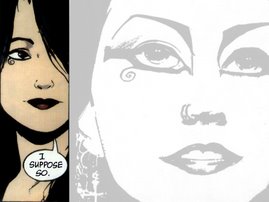I have a new book on my bedside table. It’s about difficult conversations and how to handle them productively. I’m sure, like me, a lot of you have experienced being trapped in conversations you would rather do without or have relationships ruined because you just couldn’t quite express how you really feel. If so, then I am not at all alone. And the good thing is - it’s never too late to learn.
Well, most would simply regard any book on the topic as “self-help”. For some reason, reading such books denotes a negative connotation in our society.
“What is so wrong with you that you need a book to help you out?” And the answer for me is – it can be anything.
For people like me who were not born genius – books are our way of learning aside from interactions with people we know. Just imagine that when you’re reading a book, you are learning from and about someone you haven’t met. And he is teaching you a thing or two about his life – in the hopes of sharing something with you (aside from the most obvious economic benefits, of course).
True enough, every case is unique in some ways. But we do have a lot of common ground to work on. And in some cases, those are enough bases to learn from. And those should be enough to trigger us to analyze our own take on things and to develop our own ideas. And did I say to learn?
When it comes to situations – I rely more on the logical side of things. My own feelings for me have not really been as important as to how the situation should be solved. It’s probably the engineer in me. Everything can be thought of as a system. Therefore, like any system you have the inside and outside forces affecting your feelings or emotions. Learning about these factors presents half of the solution already. A problem identified is a problem half-solved, right? Right.
But it’s important to also understand the forces and to influence them. To do corrective approach to every problem would, of course, mean only a non-ending chase to it. So, what to do? Preventive, of course.
And that’s where “learning” comes in. If you’ve been logical all your life – what should you do to make shift? Yes, that’s right. Try the opposite. Don’t be too scared to acknowledge your emotions, your feelings. Don’t let it overpower you but don’t ignore it either. Hear yourself speak about your emotions. “I feel hurt.” “I am happy” “I am confused.” The words to use to describe how we feel are endless. We just don’t use them properly. We approach things on moral grounds – on who is bad, who is good, who was to blame or who wasn’t. And that’s not really solving the problem but pointing a finger. It is a waste of time to argue or communicate this way because everyone will feel attacked at some point and will use all defenses possible to fight back. And both just lose in the end.
Acknowledge your feelings. They are real. And when you show them, don’t think of who’s right or wrong. Just show them without having to attack the other person. Don’t say “You’ve hurt me”, rather say “what you did hurt me” or “I feel hurt when you do that”. People can change if they want to. You cannot do it for them, Let them decide if they want to. Encourage them if you have to. But don’t take it your responsibility to change them. And don’t believe you actually can, either.
“I Am Sam”, a movie starring Sean Penn and Dakota Fanning shows one of the most wonderful relationships I have ever seen depicted in a movie. It shows how to communicate our feelings. It shows how to acknowledge love and hurt and pain. It shows how we can be more than what we know and what we don’t know. It shows how compassion breaks all barriers.
Please see that movie, if you haven’t. I have seen it for countless times and I can’t help but be emotional EVERY SINGLE TIME! But it’s worth it. More than actually. My take on it – lesson 1 on communications.
http://www.script-o-rama.com/movie_scripts/i/i-am-sam-script-transcript.html
Subscribe to:
Post Comments (Atom)


No comments:
Post a Comment